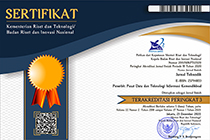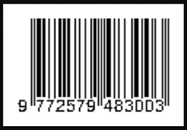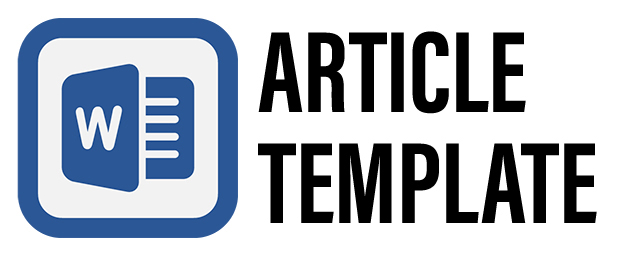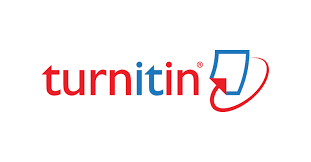EVALUASI PEMANFAATAN E-MODUL SEBAGAI BAHAN BELAJAR MANDIRI DALAM PROGRAM PENINGKATAN KOMPETENSI GURU
Evaluation of E-Module Utilization as Self-directed Learning Materials in Teachers’ Competency Improvement Program
DOI:
https://doi.org/10.32550/teknodik.vi.972Abstract
Peran e-modul sebagai sarana pembelajaran mandiri dalam program peningkatan kompetensi guru yang bernama Pembelajaran Berbasis Teknologi Informasi dan Komunikasi atau PembaTIK sangatlah penting, khususnya dalam membangun interaktivitas dan motivasi belajar peserta PembaTIK saat tidak ada pertemuan tatap muka konvensional. Proses belajar dan pengembangan diri PembaTIK tahun 2021 dilaksanakan secara daring dan jarak jauh. Namun, belum diketahui sejauh mana efektivitas pemanfaatan 16 (enam belas) e-modul PembaTIK 2021 sebagai sarana belajar guru dalam meningkatkan kompetensi. Kualitas dan kebermanfaatan e-modul sebagai bagian dari sistem PembaTIK juga perlu dievaluasi sebagai tolok ukur dan referensi apabila perlu dilakukan perbaikan. Melalui kajian ini, dilakukan evaluasi penilaian terhadap lima aspek e-modul oleh ahli dan penjaringan pendapat peserta mengenai efektivitas penggunaan dan kebermanfaatan e-modul melalui kuesioner. Hasil evaluasi e-modul oleh ahli menyatakan bahwa aspek kualitas isi/substansi e-modul mendapat indeks nilai A, sedangkan aspek pembelajaran, bahasa, kelengkapan media, dan grafis memperoleh indeks nilai B. Hasil kuesioner menunjukkan persepsi responden yang sangat positif di atas 90% terhadap penggunaan dan kebermanfaatan e-modul. Kesimpulan kajian adalah e-modul program peningkatan kompetensi guru ini sudah cukup baik sebagai bahan belajar mandiri. Namun, perlu ada peningkatan kualitas pada beberapa aspek, terutama untuk meningkatkan motivasi dan hasil belajar, daya tarik belajar, keberlanjutan, dan keselarasan dalam kesatuan sistem program. Rekomendasi kajian evaluasi ini dapat dijadikan referensi dan standar untuk peningkatan kualitas e-modul pada waktu mendatang
The role of e-modules to facilitate self-directed learning in teacher’s competency improvement named Pembelajaran Berbasis Teknologi Informasi dan Komunikasi or PembaTIK significantly matters, particularly to build the interactivity and learning motivation of program participants when there are no face-to-face conventional classes. Learning process and the competency building of PembaTIK 2021 was held in distance and online mode. The circumstances that consider as a problem is the effectiveness of 16 (sixteen) PembaTIK e-modules utilization as learning materials to enhance teacher’s competence is not yet known. Evaluation also required to determine the quality and usefulness of e-modules as a subsystem in the PembaTIK program. The results of the evaluation can be used as benchmarks and references if improvements are needed. This evaluative study was generated by a quantitative method of e-modules assessment by the experts to evaluate five aspects including 1) substance; 2) instructional; 3) linguistic; 4) learning media; 5) graphics and visualization. And the second method is a survey to gather the user’s opinions about the quality aspect of effectiveness and usefulness of e-modules. The results of the data analysis can be summarized as follow: there is a diversity of e-modules quality and different conformity level on e-modules aspects. Some e-modules need to be revised. Recommendations from this evaluation study can be utilized as a reference and standard for e-modules development in the future.
References
Ali, M. (2014). Memahami Riset Perilaku dan Sosial. Jakarta: Bumi Aksara.
Darmayasa, I.K., Jampel, I.N., dan Simamora, A.H. (2018). Pengembangan E-Modul IPA Berorientasi Pendidikan Karakter di SMP Negeri 1 Singaraja. Jurnal Edutech Universitas Pendidikan Ganesha, Vol. 6 No.(1), 53—65.
Geng, S., Law, K.M.Y, dan Niu, B. (2019). Investigating Self-directed Learning and Technology Readiness in Blending Learning Environment. International Journal of Educational Technology in Higher Education, 16:17, 1—22. https://doi.org/10.1186/s41239-019-0147-0.
Hidayati, N., Setyosari, P., dan Soepriyanto, Y. (2018). Kompetensi Technological Pedagogical Content Knowledge (TPACK) Guru Soshum Setingkat SMA. Jurnal Kajian Teknologi Pendidikan, Universitas Negeri Malang, Vol. 1 No. 4 (2018), 291—298.
Khimmataliev, D., Khakimov, J., Daminov, O., dan Rakhmatova, F. (2020). Criteria And Indicators For Assessing The Level Of Professional Training Of Future Teachers Of Vocational Training At A Training Module. Journal of Critical Reviews, Vol. 7, Issue 5, 2020, 428—431.
Nasution, I.S., dan Siregar, E.F.S. (2021). Implementasi Pendekatan TPACK (Technological Pedagogical Content Knowledge) bagi Guru SD Muhammadiyah 12 Medan. Ihsan: Jurnal Pengabdian Masyarakat, Vol. 3 No. 2 (Oktober 2021), 206—212. doi:10.30596/ihsan.v%vi%i.8136.
Pareto, L., dan Willermark, S. (2018). TPACK in Situ: A Design-Based Approach Supporting Professional Development in Practice. Journal of Educational Computing Research. 0(0), 1—41. DOI: 10.1177/0735633118783180.
Prawiradilaga, D.S., Widyaningrum, R., dan Ariani, D. (2017). Prinsip-Prinsip Dasar Pengembangan Modul Berpendekatan Hypercontent. Indonesian Journal of Curriculum and Educational Technology Studies, IJCETS 5 (2) (2017), 57—65. doi: http://dx.doi.org/10.15294/ijcets.v3i1.8675.
Rusmanto, dan Rukun, K. (2020). The Development of E-Learning Module Based on Project-Based Learning (PJBL) for Electric Motor Installation Course. Journal of Educational Research and Evaluation, Volume 4, Number 2, Tahun 2020, 181—193.
Suprayekti, Wargahadibrata, H., Kustandi, C. (2016). Perspektif Ilmu Pendidikan, Vol. 30 No. 1, April 2016, 1—9.
UNESCO. (2018). ICT-CFT: Information and Communication Technology Competencies Framework For Teachers. Paris: United Nations of Education Science and Culture Organisation.
Warsita, B. (2016). Evaluasi Bahan Belajar Diklat Online Calon Pejabat Fungsional Pengembang Teknologi Pembelajaran. Jurnal Teknodik, Vol. 20. Nomor 1, Juni 2016, 59—72.
Wasserman, E., dan Migdal, R. (2019). Professional Development: Teachers' Attitudes in Online and Traditional Training Courses. Online Learning, 23(1), 132—143. doi:10.24059/olj.v23i1.1299.
Woo, T.K. (2012). Developing Quality Learning Materials for Effective Teaching and Learning in an ODL Environment: Making the Jump from Print Modules to Online Modules. Asian Association Open University Journal, Vol. 6 No. 1 September 2012, 51—58.
.
Downloads
Published
How to Cite
Issue
Section
Citation Check
License

This work is licensed under a Creative Commons Attribution-NonCommercial-ShareAlike 4.0 International License.
Please download and complete the Form, Copyright Transfer, and Ethics Statement Form. The following is provided at the time of submitting the text (Upload Additional Files):










